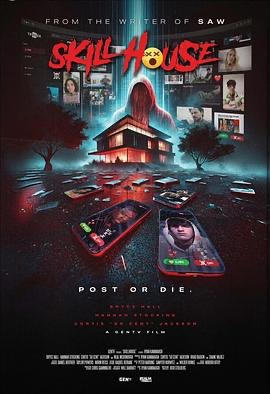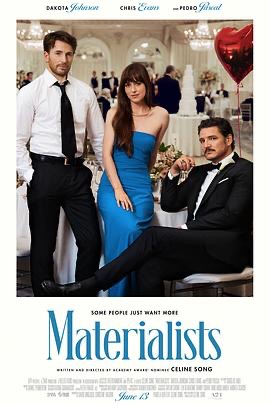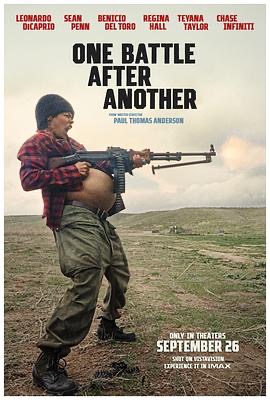Must-See Trailers
See AllDiscover the Trailers Everyone’s Talking About
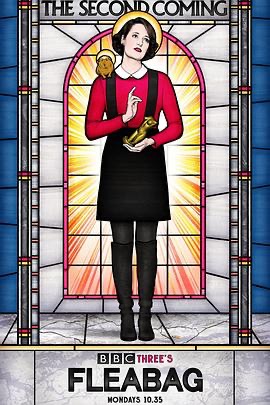
Fleabag
Phoebe Waller-Bridge, Andrew Scott, Olivia Colman
Fleabag (played by Phoebe Waller-Bridge) is shocked when her father (played by Bill Paterson) decides to marry his girlfriend (played by Olivia Colman), and they invite a priest (played by Andrew Scott) to officiate the ceremony. To everyone’s surprise, the celibate priest and Fleabag develop a fatal attraction for each other. Meanwhile, Claire (played by Sian Clifford) continues her troubled marriage with Martin (played by Brett Gelman), even though she knows her husband is a jerk. Despite this, they actively try to conceive a child. The priest’s appearance forces Fleabag to confront the various issues in her life, and she faces a crucial decision regarding her involvement in a doomed relationship. How will Fleabag choose in the end?
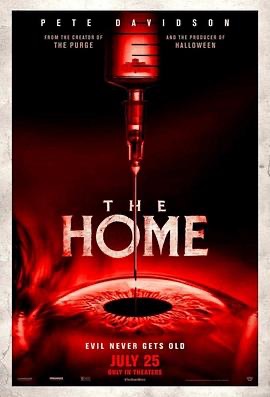
The Home
Peter Davidson, Marisa Tomei, Matthew Minero
Follows Max, who realizes that the residents and caretakers in the retirement home he started working at hide sinister secrets.
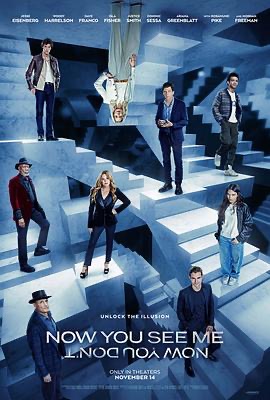
Now You See Me: Now You Don't
Jesse Eisenberg, Woody Harrelson, Isla Fisher
A mysterious Tarot card pulls together two generations of a magic theft crew, eight magicians joining forces for the first time to battle a global-level criminal network behind the Blood Diamond family.

Zootopia 2
Jason Bateman, Ginnifer Goodwin, Guan Jiwei, Shakira, Kunta Brunson, Fortune Feimster
Brave rabbit cop Judy Hopps and her friend, the fox Nick Wilde, team up again to crack a new case, the most perilous and intricate of their careers.
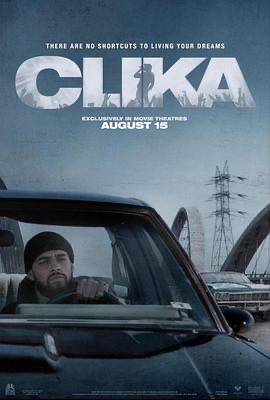
Cosas de la Clika
Eric Roberts, Peter Greene, Norman Towns
An ambitious small-town musician's performance video goes viral, and he wants to seize the opportunity to make a name for himself in the music industry. However, this game of chasing fame and success may not be one he can control.

Five Nights at Freddy's 2
Matthew Lillard, Piper Rubio, Mark Fischbach
Officially announced the second part.

Bitter Sweet Ballad
Quan Yufei, Zhang Zhanhao, Wang Luyao, Feng Xiaoyun
Dandelion Middle School is the first middle school in Beijing specifically established for the children of migrant workers. Teacher Yuan Xiaoyan has been working with the school's choir for eight years. Every year, when new students enroll, she selects a group of music-loving, talented first-year students to join the choir. With the construction of Beijing Daxing International Airport, the school, initially set up in an abandoned workshop, is moving to a newly built modern campus. In the final year at the old campus, the choir welcomed a new batch of students, while the second-year members had to face decisions about their future with their families. For the choir kids, their middle school life will eventually be interrupted by the pressures of further education and the inevitability of parting ways. Throughout this journey accompanied by music, they have experienced the joys and sorrows of youth, which they bury deep in their hearts, turning them into the nourishment for their growth.
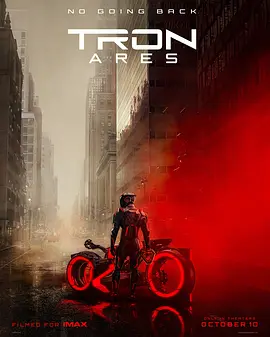
Tron: Ares
Jared Leto, Evan Peters, Greta Lee, Sarah Desjardins, Gillian Anderson, Jeff Bridges, Cameron Monaghan, Judy Turner-Smith, Arturo Castro
A highly sophisticated Program, Ares, is sent from the digital world into the real world on a dangerous mission.
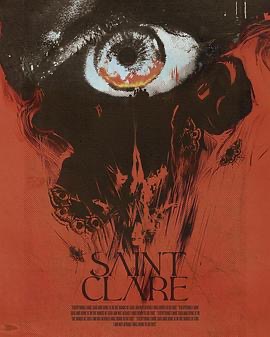
Saint Clare
Bella Thorne, Rebecca De Mornay, Ryan Phillippe
Follows Clare Bleecker, a quiet catholic college student with a divine vocation for killing.
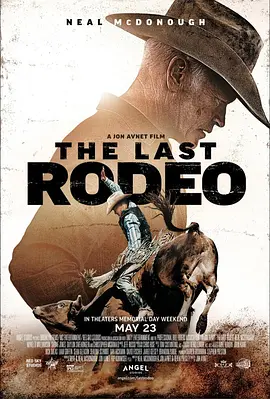
The Last Rodeo
Neal McDonough, Sarah Jones, Christopher McDonald, Mykelti Williamson
To save his grandson, a retired rodeo star enters a high-stakes bull-riding competition. Along the way, he confronts his past, discovers faith, and proves that true courage lies in family.
Audience All-Stars
This Week’s Most Watched & Buzzed-About Blockbusters

The Summer I Turned Pretty Season 1
Amazon has acquired the adaptation rights to Jenny Han's YA novel *The Summer I Turned Pretty* (another work by the author of *To All the Boys I've Loved Before*) and is preparing to turn it into an 8-episode series. The author herself will be responsible for writing the script for the first episode. *The Summer I Turned Pretty* is a multi-generational drama that includes a love triangle between the female lead and two brothers. It also delves into the relationships between mothers and their children, as well as themes of female friendship.
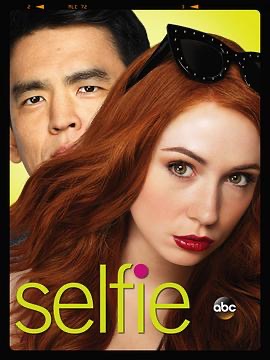
Selfie
In real life, Elisa (Karen Gillan) is quiet and unnoticed, and no one would ever imagine that such an inconspicuous and unlikable girl is actually a virtual world sensation with hundreds of thousands of fans. The reason for this can be traced back to a viral video that made her famous online, but for Elisa, it’s not exactly a good thing. One day, Elisa realizes that even though she has thousands of "fans," in the real world, she is still alone. So, Elisa turns to her market-savvy colleague Henry (John Cho), asking for help in "rebranding" herself in real life. Henry is unlike any man Elisa has met before, and with his help, will Elisa be able to leave the "internet" behind and return to "human society"?

Kyuka: Before Summer's End
Summer time. A family of three, single father Babis and his nearly adult twin children, Konstantinos and Elsa, take a family boat to Poros for vacation. While swimming, sunbathing, and making new friends, Konstantinos and Elsa accidentally run into their biological mother, Anna, who abandoned them when they were babies. This encounter will stir up Babis's long-held resentment and lead to a bittersweet journey of growth for everyone.
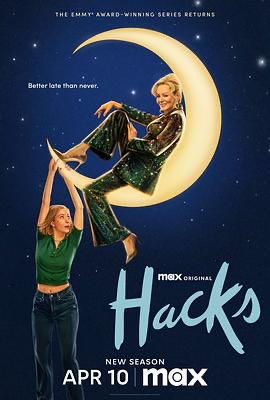
Hacks Season 4
Deborah and Ava work hard to launch their late-night show and make history, as tensions rise along the way.
Voices of the Audience
View AllUnfiltered Reactions & Honest Movie Takes from Real Fans
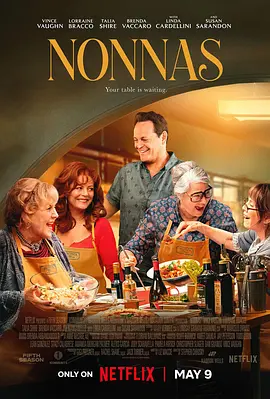
Nonnas
Overseas reviews: The film has outstanding advantages. The wonderful performances of veteran actors make the characters vivid and lively. The food scenes are tempting and convey the food culture. The theme is warm and profound. However, there are also shortcomings. The romantic subplot is old-fashioned and the stories of supporting characters are not explored enough. Overall, viewers who like warm comedies and food culture should not miss it. When watching, they can focus on the actors' performances and the emotions behind the food.
Read Full Review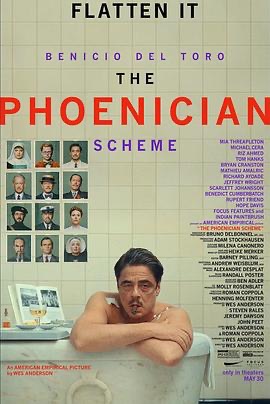
The Phoenician Scheme
This is Wes Anderson's darkest film to date. If *The Grand Budapest Hotel* is the closest Wes Anderson has come to Spielberg, then I think *The Phoenician Scheme* can be seen as a fusion of 10% David Fincher and 5% Bergman. It's brilliant, exciting, with a touch of poignant tragedy, sadness, and reflections on life and death. Of course, by "dark," I mean Wes Anderson's kind of dark—similar to the grim tales in the Brothers Grimm. For example, Bluebeard dismembering his wives and hiding them in locked rooms. Similarly, the protagonist, Anatole “Zsa-zsa” Korda, is suspected of having murdered his previous three wives. He is, by all worldly standards, a bad man: manipulating markets, colluding with officials, royalty, and underworld forces, selfish and ruthless, constantly amassing wealth, making countless enemies. Every day, people attempt to assassinate him or poison him, but he always wakes up from unconsciousness, repeatedly coming back to life. He’s a bad man, but perhaps the reason is that he was never really loved as a child. This film tells the story of his final desperate efforts alongside his daughter Liesel for his grandest industrial project, *the Phoenician Scheme*, and his commercial empire. It’s also a story of him finding inner love and reconciling with himself and the world. Wes’s characters are always strange and exceptional. Zsa-zsa is a bad man, but he’s incredibly charming and lovable—he's dangerous, cold, and cunning, yet occasionally, you catch glimpses of the vulnerability and sadness hidden beneath his cold exterior. When he wakes up after another assassination attempt, sitting in a bathtub covered in wounds, eating scrambled eggs, reading, smoking, and drinking champagne, what you feel is a certain sadness, helplessness, and tragic beauty. Almost every Wes Anderson film has that one scene that takes your breath away. In *Isle of Dogs*, it’s the stop-motion sushi scene; in *The Royal Tenenbaums*, it’s Margot stepping out of the car in slow motion; in *The Darjeeling Limited*, it’s the three brothers abandoning their exquisite Louis Vuitton suitcases and running to catch the train. In this film, it’s the opening shot of Zsa-zsa in the bathtub, recovering from his wounds. I could watch that slow-motion scene ten times: in a beautiful, luxurious, brightly lit bathroom, surrounded by nurses in white, coming in and out, he sits in the tub, wounded, reading, eating scrambled eggs, smoking, and drinking champagne. The opening credits slowly change, the colors of the letters beautifully complementing the patterns of the floor tiles. At the press conference after the film premiered at Cannes, Benicio del Toro shared the story behind shooting this scene. He said, "Wes told me, 'You sit in the tub, the nurses will come in and out, they’re just doing their thing. You are going to eat, read, smoke. I am shooting in slow motion, but you all have to act really fast.'" Benicio was confused: "Why use slow motion if we’re acting fast? Wouldn’t the result be the same if you shot it normally?" But after seeing the final cut, he realized that it truly made a difference—Wes was right. He said, "I saw it on the big screen for the first time yesterday. It’s mesmerizing." Wes Anderson is a genius. No one else can achieve the level of detail and beauty he brings to the camera. Right now, I fondly imagine that experiencing the visual beauty of Wes Anderson’s films for the first time is akin to experiencing certain art masterpieces—it expands your perception of beauty. You think, "Wow, I didn’t know such beauty could exist." Having someone like him present his world to us is a true blessing. Zsa-zsa has a line in the film that exudes the "I’m teaching my son" tone: “Never buy good pictures. Buy masterpieces.” Some of the oil paintings in the film, including surrealist Magritte and impressionist Renoir, are real works of art. They were lent to Wes by curators from a European museum. That’s the charm of Wes Anderson. These paintings were borrowed for free just to appear in the film for a few seconds. They were carefully transported to the set, filmed, and then returned to the museum, all for the few moments they spend on screen. Naturally, Zsa-zsa, this villain, wouldn’t have a beautiful and sinister palace without a few world-renowned paintings. The homes of Russian oligarchs probably have Rothko and Picasso on their walls. I really like this film. To me, it’s even better than *The French Dispatch* and *Asteroid City*. Compared to them, *The Phoenician Scheme* has more obvious dramatic conflict and stronger storytelling. Zsa-zsa and his daughter Liesel’s journey of visiting various tycoons and renegotiating terms is like a video game, leveling up through different bosses. It’s even a bit like *Journey to the West*, but these monsters are even funnier, especially with big-name stars like Tom Hanks and Scarlett Johansson playing them. In this video game structure, Benedict Cumberbatch’s Uncle Nubar is the ultimate boss at the final stage. You must watch his portrayal, especially his eyebrows—they’re biblical. Maybe I sound a bit heavy in my writing, but the film is really funny! Wes Anderson’s humor is hard to explain. The funniest character is the entomologist tutor Bjorn, played by Michael Cera, with his "Oslo" accent. This reserved, elegant Nordic academic, after drinking three beers, asks Liesel, “Can you imagine yourself falling in love with a man like me, hypothetically speaking?” Michael Cera seems like the perfect fit for Wes’s films. Tom Hanks and Bryan Cranston as the "Sacramento Consortium" are also hilarious, especially Bryan Cranston’s basketball moves—they’re a work of art. Richard Ayoade’s portrayal of the rebel leader, spraying bullets in a nightclub while speaking with a crisp RP British accent, is an absurd and delightful contrast. The familiar elements and emotions from his previous films still shine through: extreme elegance, luxury, and beauty, always contrasted with a sense of loneliness, alienation, and unspoken sorrow. There was once a fan exhibition inspired by his films, called *Bad Dads*. Zsa-zsa in this film is a *bad dad*: his nine sons are housed in the same dorm across the street, while his only daughter is a nun in a convent. If Zsa-zsa hadn’t realized that he might die from an assassination attempt, he would never have called Liesel. He hadn’t seen her in six years before that. Though he names Liesel as his only heir, it’s “on a trial basis,” just like he has eight sons but still adopts one because “maybe the adopted one is the smartest?” As a father, Zsa-zsa is like Royal from *The Royal Tenenbaums* and Zissou from *The Life Aquatic*. Royal always introduces Margot with, “This is my adopted daughter, Margot Tenenbaum.” However, by the end of the film, these fathers usually soften, becoming more peaceful and tolerant. They’ve spent their lives fighting with the world, uncompromising and lonely, but in the end, they complete what they were meant to do—reconciling with their children and the world in their final moments. His films are like fairy tales for adults. The character of Zsa-zsa is based on the father of Wes’s wife, Juman Malouf. He’s Lebanese, an engineer, and a businessman. I imagine he might be one of those old-school Middle Eastern businessmen—silent, sharp-eyed, and intimidating. Wes says, "I was a little afraid of him at first. One time he said to me, 'I only work with lions. Do you have lions?' If you go to a restaurant with him, you’ll get special treatment. My father-in-law would order the waiters, 'Move this table over there. We’ve been waiting too long!' And they would obey. I’ve never had anyone treat me like that." The father-daughter relationship in this film is very complex—distant yet touching. Wes’s previous films also featured father-child relationships, but this one places the most emphasis on it. I think it stems from Wes’s own feelings about his relationship with his daughter. He and Roman Coppola co-wrote the story, both having one daughter each. In his recent films, the elements of religion and death have become more prominent, adding weight, mystery, and a certain reverence to the films. I think this reflects Wes’s own thoughts on aging and death as he turns 56. The black-and-white segments in the film, which seem like a judgment before entering heaven, are dreamy and like a review of one’s life or unresolved emotions. I think these black-and-white scenes are especially striking, and the cameos by actors like Willem Dafoe, Charlotte Gainsbourg, and Bill Murray—who look like ghosts from an absurd dream or ancient gods from myth—are truly captivating. Of course, though I’m speculating on Wes’s thoughts about aging and death, he still looks twenty years younger than his age. When *Isle of Dogs* premiered at the Berlin Film Festival in 2018, I saw him on the red carpet, and his posture and appearance were like that of an art-school student who likes to daydream. The film’s score is modern, using Stravinsky’s *Firebird*. This time, Wes changed cinematographers. He had worked with Robert Yeoman from his first film *Bottle Rocket* all the way through ten films. This time, however, he worked with a new cinematographer. I was initially concerned, but after watching the film, I couldn’t tell the difference. What does this say? Wes’s personal style is so strong that it’s instantly recognizable, no matter who’s behind the camera. Overall, I think this is Wes Anderson’s most different attempt so far, but I understand why some people still see the same Wes Anderson in this film. He often says, “Every time I make a film, I feel like I’m trying something very different, but when the trailer comes out, people say: 'Wes Anderson’s style is more recognizable than ever!' (laughs)." I think I’m seeing a tendency toward transcendence in his work, reflecting his inner evolution as he approaches his later years. Maybe, eventually, Wes will follow Bergman, leaving the world behind.
Read Full Review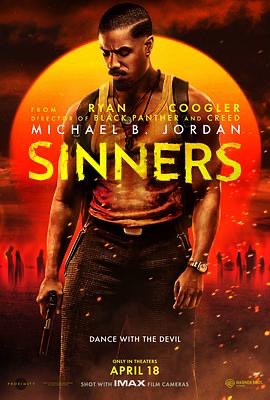
Sinners
It might be, no, *definitely* the best horror film of the year. So overwhelming, so crazy. The historical background is just fragmented, pieced together in bits and pieces, but while watching this film, there’s a deep, sorrowful, painful feeling that settles in. It's like you understand what it's trying to say. In most horror films, the monsters are terrifying and chilling, but there are several moments in this one when you even begin to think the monsters have a point? You can’t help but be confused, tempted to accept their view. The dead aren’t truly gone—they’re from the past. The beings outside the door aren’t terrifying, ominous monsters, but rather loved ones, close friends, the most important people in your life. You want to cross over and join them. Become a part of an intimate family bond, with a connection that lets you understand each other’s memories deeply (in reality, it's the manipulative creator taking their lives and stories, using ghosts to deceive others and steal even more). You have to convince yourself that the emotions being shown are deceit, a lure to get you to give up your life… but is it *just* deceit? The core of the film is a bit like *The Mountain of Madness*. A group of people goes on an expedition to the snow mountains, and one night, while you're alone in a cabin, your lover appears and tells you that the others died in an accident, and later, your teammates appear and say your lover was the one who was possessed… who do you believe? Which side do you choose? The question is, what if the one standing outside the door is the person you can’t bear to part with? Even knowing they’re a monster, they confess that they will turn you into one too, to live freely together, sharing memories and the night sky. You just have to pay a small price, like giving up your human identity, never walking under the sun again… and they’ve already died, irreversibly becoming a monster. Would you go? Cross the boundary between the ordinary and the extraordinary, and walk toward the monster? To become a creature abandoned by the sun together. At first, I thought only the creator’s will was manipulating things. The monsters that were transformed had no thoughts of their own, no "soul," simply the cunning creator who steals memories and imitates the victims’ personalities, deceiving those who were closest to them into trust. If that were true, there’d be no hesitation, no doubt. You’d want to kill the creator immediately, and bury the desecrated bodies. But the longer you watch, the more astonished you become. It seems that becoming a monster offers a different way of thinking, something that’s distinct from human thought. But the tone, the habits of the speaker, and even the urgency of their killings take on another meaning. “Hurry, join us. Stay with us as a close family.” The deceased who were executed by the stake couldn't complete their transformation. So, their cries and howls became filled with true, raw pain. It felt as if they were genuinely sorrowful, devastated, and disrupted by "stupid" loved ones stubbornly clinging to their human identity, ruining the whole beautiful plan. The witch has firm faith, believing souls will reunite on the other side. The lover faithfully follows her will, but hesitates, wavers, and ultimately lets go of the blood relative he could not harm. An unbearably tragic night. Some stumble on, surviving as humans. Others, two outcasts, flee together, support each other, and somehow manage to live a relatively decent few decades, fulfilling unachieved desires. Even vampires love blues. Music that’s enough to summon demons... In the cheerful, jumping melodies and eerie, melancholic songs, even ordinary zombie forms become rhythmic. That golden, beautiful night, I was still puzzled about how the bar had suddenly been set up. The scenes weren't explained, only to be revealed later when everything had been destroyed in chaos. Those fleeting, interwoven images. Maybe there were never any vampires. Maybe it was an attack in an unguarded moment of joy. Maybe it was all completely man-made destruction. The only one left alive, a young man, walks out, bathing in the first light of dawn. Decades later, he turns the story into a fantastical, modified tale. But wouldn’t that be boring? It wouldn't fit such a beautiful night, such a brief, fleeting moment. They were still discussing how to use plantation vouchers to make back their expenses, still seriously studying the accounts and spending for the next two months. Let's stick to the vampires. Take away all those unforgettable people, the cousins of local legends, the girl he fell in love with at first sight, the musical partner, the familiar and unfamiliar residents of the small town. Take away their living breaths and blood-tinted faces. Leave behind the guitar gripped tightly in the young man's hands, and the scars on his face. Let him wander, not to waste this life he picked up. He must preserve his own memories and stories. He must exist as "human."
Read Full Review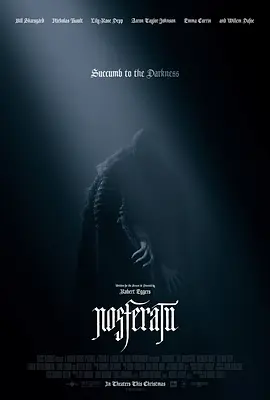
Nosferatu
This weekend I came across the horror movie "Nosferatu" that was recommended to me before the Spring Festival. I didn't expect it to be an award-winning movie in Hollywood this year. The movie tells the story of Alan who summoned a ghost as a child and ended up being possessed by it. When he grew up, he married a young real estate agent, Thomas. In order to make a living, Thomas was arranged by the company to go to an abandoned castle to do business with Count Nosferatu. He met the mysterious and terrifying Count Vampire and fled the castle in a hurry. Unexpectedly, the Count Vampire had arrived and caused a plague in the town. He and his wife, together with the professor they invited, began to try to eliminate the Count Vampire. The story framework setting basically replicates the horror narrative of the return of the vampire Count causing the spread of plague in the old movie "Nosferatu" in 1922, and is mixed with the Count's obsession with his new wife in "Bram Stoker's Dracula" in 1992, and then innovatively adds the desire-driven nature of today's trendy female subjectivity. In the end, the movie ends with the Count's terrifying desire gaze at the heroine Ellen, and Ellen, as the subject of desire, is hesitant to speak but easily kills the Count in the end, resulting in a split in the viewing experience. This movie wants to maintain the same Gothic style as the previous one - dim environment background, plain clothes, and towering gloomy castle. Although the atmosphere is well set, the unique aesthetic details of Gothic are not refined enough. The gloomy castle is only left with light and dark silhouettes, making the movie look like a horror shell. As for Depp's daughter Lily, who plays Allen, I personally feel that she is not suitable for this role. Her body shape is not suitable for playing the peerless beauty praised by the real estate boss; and her temperament is rather wooden. She does not have the fragility and confusion of Winona Ryder in "Bram Stoker's Dracula", nor does she embody the tension of female subject desire, only the hysteria when she is possessed by ghosts. The female characters lack flavor, and the male characters are not portrayed accurately. Nicholas Hoult, who plays the newlywed husband Thomas, is middle-aged but not mature enough, so he is suitable as a husband without sex appeal in the movie, but his appearance lacks the Gothic style. And Count Nosferatu in the movie has become a hairy monster, which is also not Gothic. Of course, these are minor flaws. The most serious problem of the film is that the expression of desire is too direct and fragmented. At the beginning, the heroine Ellen summoned the vampire lord because of desire, and then she was in a panic. During this period, the film directly expressed the desire through the wanton flirting between her husband's friend and his wife. Then the newlywed wife directly asked her husband for sex to express her true love for her husband and rejected the vampire lord's sexual request. So the desire either did not appear or was so obvious that it blinded the eyes. Only the detail of the naked girl riding a horse towards the depths of the fog in the middle of the movie was meaningful. At the same time, the movie constantly emphasizes that the Count is powerful. He can control the real estate owner to become his accomplice, and can spread the plague through his coffin. But in the end, Allen kills the Count directly by having sex with him. It can be said that dying under the peony flower is unjust as a ghost! It can be seen that the powerful ability of traditional vampires in the movie is ultimately no match for the powerful consciousness of modern women, and the adaptations that are not beautiful outside the movie have won consecutive photography awards. It turns out that Hollywood movies are gradually regressing!
Read Full Review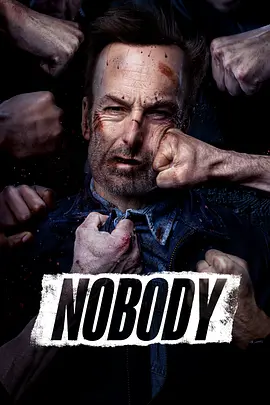
Nobody
"Little People" is a crime action film released in 2021, directed by Ilya Naishuller and starring Bob Odenkirk, Connie Nielsen, Alexi Serebryakov and others. The film tells the story of the protagonist Hutch (Hutch Mansell), a retired agent killer who longs for a peaceful life, but in order to protect his family and children, he has to get involved in gang disputes again. I was deeply impressed by this movie, especially its portrayal and understanding of "little people". People who struggle at the bottom of society are often overlooked, and this movie is a loving tribute to them. The character of Hutch made me see the helplessness and tenacity of an ordinary person in the face of life pressure and danger. Although he was a top agent, after retiring, he just wanted to live an ordinary life. However, for the safety of his family, he had to wield his weapons and become the "nobody" again. The action scenes of the film are very exciting and exciting, which makes people sweat. The acting is also excellent, especially Bob Odenkirk, who successfully portrays a character with both wisdom and courage. In addition, the film's music and photography are also very good, creating a depressing and tense atmosphere for the film.
Read Full Review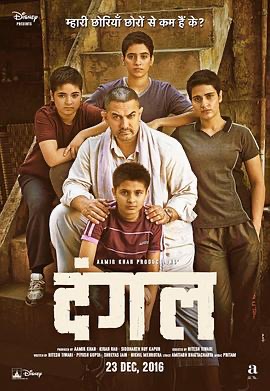
Dangal
In the 2016 Rio Olympics, Joseph Schooling defeated Michael Phelps to win Singapore's first-ever gold medal since its founding. While Olympic gold medals may seem ordinary to us, in Singapore, a country with only five million people, Schooling became a national hero. After returning home, Singapore organized a victory parade for him. Schooling stood at the top of a double-decker open bus, which slowly made its way through Singapore's main roads. Crowds of people lined the streets, many even running behind the bus as it passed. This level of attention and national pride reminded me of only one other event in Singapore's history: the passing of Lee Kuan Yew in 2015. Just like Schooling’s victory parade, Lee Kuan Yew’s funeral procession slowly passed through the streets, with crowds of people watching. However, the difference was that while we were bidding farewell to one hero, we were welcoming another. What impact did Schooling’s gold medal have on the country? First, it brought joy to Singaporeans for an extended period, almost like a festive celebration. Secondly, it’s said that every youth swimming class at swimming pools was fully booked, especially butterfly stroke classes, since Schooling won the gold in the 100m butterfly. The power of an idol! Most importantly, a new voice and a growing awareness quietly emerged among the Singaporean public: Singaporeans too can win Olympic gold! Suddenly, people felt that the gold medal was not so out of reach. However, this belief, this awareness, was something Singaporeans had waited 51 years to embrace. Despite being a wealthy country, Singapore's investment in sports has always been generous. To motivate athletes to win medals, the government has never hesitated to spend money. In comparison, Chinese Olympic gold medalists are only awarded about 200,000 RMB in 2016, but in 2008, a Singaporean table tennis athlete who switched nationality from China received nearly 4 million RMB for a silver medal. Even with such generous incentives, Singapore had never seen a medal won by a local athlete until 2016. Olympic athletes are chosen from the best of the best, and with Singapore’s small population base, the pool to select athletes is limited. But the athletes selected aren’t necessarily lacking in physical ability. The Olympic Games feature 28 sports, and if an athlete is not strong in athletics, they can try gymnastics or aquatic sports. There’s always a sport where they can make a mark based on their country’s and ethnicity’s characteristics. Singapore has produced outstanding athletes, but when it came to winning international medals, the key factor was a lack of confidence. This long-standing “I can’t” mentality couldn’t be broken until Schooling’s victory. Imagine that even a country like Singapore, which had everything in place, needed 50 years to develop the “We (too) can” mentality. This speaks volumes about the challenges a country like India faces, with even more complex and difficult conditions. According to Wikipedia, India does have Olympic gold medals, though they are few and far between. In the past decade, India only won one gold medal in men’s shooting at the 2008 Olympics. Why? The people of India don’t seem physically weak. The country’s warrior caste, the Sikhs, has always been known for their military prowess, especially in terms of strength. But India still hasn’t won Olympic gold. This can be attributed to two major factors: cricket’s dominance in India and the country’s gender inequality. Cricket in India is not just a sport; it’s the national obsession. Young boys with strong physiques often start training for cricket early on. In India, cricket players are like Bollywood stars, and reaching the top in cricket guarantees immense wealth and fame. The public cares only about performance on the field, not your social background. Cricket has thus become a means for many boys to escape poverty. On the other hand, other sports, lacking government support, media attention, and public interest, have seen fewer athletes pursuing them. While men flock to cricket, Indian women athletes are quietly rising. At the 2016 Rio Olympics, India won only two medals, a bronze and a silver, both thanks to women athletes excelling in badminton and wrestling. More and more Indian women are now entering professional sports. This brings us to the topic of women’s status in India. In truth, we know very little about India and often hold biased views based on limited information. The common image is one of frequent news about sexual assaults, high dowries, and women being confined to serving their in-laws with no freedom or voice. We might even think India is still stuck in the past, but this is not the full picture. These issues do exist in India, but they don’t define the entire country. This is like how Western media once portrayed China based on rural practices of “bride price,” which led to the misconception that China was backward. The reality is that, while some rural areas in China still have such practices, they’re not representative of the country as a whole. India's historical and cultural context is vastly different from China’s. India’s unity is much lower than China’s. Since ancient times, the Indian subcontinent has been home to numerous independent kingdoms, each with its own language and culture. These kingdoms evolved into the modern Indian states. Historically, these regions have differed greatly in terms of geography, religion, and culture. It’s this diversity that makes India one of the most diverse countries in the world. Understanding India requires recognizing this complexity, which is why generalizations are not useful. In the northern part of India, the culture and politics have been more influenced by Islam, including teachings that subordinate women. In contrast, the south, less impacted by Muslim rule, remains more progressive in terms of gender equality. Historically, women in India had more equal rights during the Vedic period, but over time, with the rise of other civilizations and the influence of Islam, their status declined. Although India’s economy has developed rapidly in recent decades, the modernizing cities are still few and far between. Urban women generally have higher education and enjoy equality with men in social standing. India has even had a female prime minister, Indira Gandhi, and many influential women in business and industry. But the situation is still grim in rural areas, particularly in the north, where education is scarce, and traditional views persist. Some areas still have child marriages, and families face heavy social pressure against women pursuing careers in professional sports. This is why the father in *Dangal* had to resist societal pressure to train his daughters in wrestling, and why it was so groundbreaking for rural girls to enter professional sports. It’s not just about breaking through traditional gender roles but about showing that “we too can” achieve something big. After the 2016 Rio Olympics, India began to reflect deeply on its performance, especially since it only won two medals despite its huge population. This contradiction between the country's economic rise and its poor showing in sports has spurred a national desire to prove itself in global competitions, a desire that *Dangal* captured perfectly. The film became a source of national inspiration, igniting the hopes of millions who want to show the world what they’re capable of. Celebrities with a sense of social responsibility have a real role to play here. As for the actors, it’s already well-known that Aamir Khan, at 51, went through an inspiring transformation to play the father in the film, gaining and losing weight. He was not alone—his four young co-stars, who played his daughters, also impressed. The one who played the second daughter was particularly memorable, with her chubby face and always-confused expression. After watching the film, I immediately searched to find out whether the actresses were amateur wrestlers or professional actors because the wrestling scenes were so realistic and high-level. I was surprised to learn that all four actresses were just actors. To prepare for the wrestling scenes, they underwent nine months of intense training, six days a week, at an Olympic-level standard. Truly impressive! It’s a far cry from the typical star actors who rely on CGI or stunt doubles to earn money.
Read Full Review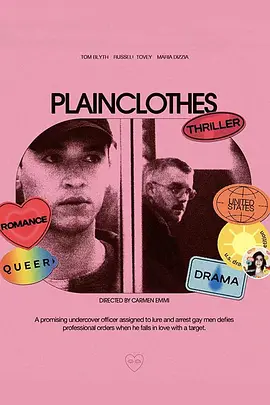
Plainclothes
"Plainclothes Police" and "Brokeback Mountain" do have many similarities, presenting the persecution of homosexuals in a homophobic social environment and the exploration of nature under the moral constraints of sexual repression. The casting of "Plain Clothes Police" is relatively reasonable compared to "Brokeback Mountain". The actors of the fishing enforcement police are necessary to meet the character setting. Most of the castings for same-sex stories are handsome men and beautiful women, as if those with ordinary looks or bad looks are not even qualified to fall in love. The same is true for heterosexual stories. There are even lines that describe handsome men and beautiful women as "ordinary". The casting is completely inconsistent with the character setting, just like I can't believe that Yuan Quan said the classic line in the stage play "Jane Eyre": "Do you think that because I am poor, humble, ugly, and short, I have no soul and no heart? You are wrong! My soul is the same as yours, and my heart is exactly the same as yours! If God gives me a little beauty and a little wealth, I will make it difficult for you to leave me, just like it is difficult for me to leave you now." This is a problem of audio-visual art form and audience aesthetics. Most humans are visual animals, and the Internet images of film and television dramas continue to strengthen the unified mainstream aesthetics. In recent years, domestic film and television dramas have seen another type of casting that does not fit the characters. Many handsome men and beautiful women are cast with actors with non-mainstream aesthetics, which has been ridiculed by netizens and audiences. It is remembered that more than ten or twenty years ago, there were all kinds of beauties blooming on the big and small screens, but nowadays, beauties are hard to find. The casting of Brokeback Mountain was criticized by the original author Annie Proulx. After the movie was released, many viewers followed their five senses and paid more attention to the love story, which weakened the criticism of the times. She received many fan fiction creations that arranged various new boyfriends for Ennis after Jack's death, which completely deviated from the main theme. She hoped that she had never written this story. The original focus is not the love between two men but the mental state and moral environment of homophobia in a specific era and region. For details, please see the original report Brokeback Mountain creator Annie Proulx regrets writing story. If the original casting was selected, it would not have become a classic love movie with so many audiences today. The two straight male actors were too shy to let go when performing the sex scene, but the two female actors exposed their breasts when filming the heterosexual sex scene. Ang Lee may have filmed it for straight male and straight audiences. It is also a merit to let homosexual-themed movies enter the mainstream vision. I remember that I went to the night market to buy pirated VCDs just for Anne Hathaway. I didn’t know the other actors, I was ignorant about sex and unfamiliar with the era, so I didn’t have much impression after watching the movie. Why didn't the film cast the characters according to the original novel? Because what Ang Lee wanted to film was love. He said, "To create a great love story, there must be huge obstacles. The two protagonists are in the American West, where there are masculinity and traditional values. Therefore, everything they feel must be kept secret. It is a precious, special thing that they cannot describe." This sentence also applies to the later "Lust, Caution". The era is not the focus, so it is no wonder that the sex scene is exaggerated to try to rationalize the psychological changes of the characters, and Mr. Yi is sad sitting on the bed after Wang Jiazhi is executed at the end. I still remember that the media hyped the deletion of the seven-minute nude sex scene. Many mainland audiences went to Hong Kong to watch the full version. Later, it was reported that Tang Wei was "banned". I couldn't help but sympathize with her and cut out the next report as a newspaper clipping. The deleted version of the screen shot pirated disc was circulated on the market. It was not until many years later that I had the opportunity to see the full version. After being eroded by various capitalist films in Europe and the United States, I no longer care about large-scale real and fake. When fake is true, true is also false. The truth is actually not important. Choose the one you are willing to believe in, which is your "truth". Of course, adaptation is similar to the secondary creation of fan fiction. The director can have his own understanding of the story, even if it is a disfiguring adaptation. The creator does not have to fear the judgment of the original party. Seeking common ground while reserving differences has its own merits. "Plain Clothes Police" is told from the male protagonist's perspective throughout, inviting the audience to enter the story and empathize with the characters to feel their psychological changes, from suppressing their nature to carefully exploring and finally awakening to facing their true selves. The police and the priest are filmed with a lot of sexual tension, although the audiovisual aspects are a bit flashy and showy. "It'll pass." Is this a slang term exclusive to priests? It immediately reminds me of the ascetic priest in the second season of "Fleabag". Coincidentally, both of them are named Andrew. I can't help but suspect that the director did it on purpose. There is still tomorrow: decriminalization of homosexuality. The 1961 film "Victim"was the first English film in film history to directly mention homosexuality. There was no same-sex sex scene in the whole film. In 1967, the UK passed the Sexual Offences Act to decriminalize homosexuality. Homosexual behavior in private places by men over the age of 21 was no longer a crime. Many people believe that "Victim" promoted legislation to some extent. In the United States, it was not until 2003 in the case of Lawrence v. Texas that the Federal Supreme Court overturned the fines imposed on John Lawrence and Tyron Deviant. This ruling overturned sodomy laws (this law is mainly used to prosecute same-sex sexual behavior in the United States) across the country. Homosexuals have the right to establish their own intimate relationships without interference from state laws. At present, 67 countries still convict homosexual behavior, mainly concentrated in the Middle East, Africa and Russia. Among them, 11 countries can impose the death penalty, including Afghanistan, Brunei, Iran, Mauritania, Nigeria, Pakistan, Qatar, Saudi Arabia, Somalia, the United Arab Emirates and Yemen, of which 8 are Asian countries. According to the survey, the death penalty is still being carried out against LGBTQ+ groups in Iran, northern Nigeria, Saudi Arabia, Somalia and Yemen, while the death penalty is still a legal possibility in Afghanistan, Brunei, Mauritania, Pakistan, Qatar and the United Arab Emirates. The new Criminal Law of mainland China in 1997 abolished the crime of hooliganism, which is considered to be a sign of the decriminalization of homosexuality in China. The current official attitude is similar to "neither support nor oppose nor advocate", and the mainstream public opinion does not agree. The crime of hooliganism is a crime stipulated in the Criminal Law promulgated in 1979, which refers to openly defying national laws and social morality, gathering to fight, provoking trouble, insulting women or disrupting public order and other serious acts. In the 1983 crackdown campaign, the penalty was expanded to the maximum of death. After the 1997 revision, the crime of hooliganism was abolished and it was divided into the crimes of forced indecency, child molestation, gathering for promiscuity, gathering to fight, provoking trouble, etc. The outlet of desire When it comes to the crime of "gathering for lewdness", I think of the report in 2023 that 6 men in Hangzhou were arrested for gathering for lewdness. Many netizens expressed homophobia, while the case of 10 men and women gathering for lewdness in the same period was ignored by most media. Is it because the public is accustomed to the lewdness between men and women and therefore it has no news value? In 2009, there was a "swapping spouse" case involving 22 defendants (14 men and 8 women) that caused a huge public opinion storm. According to the prosecution's data, from the summer of 2007 to August 2009, 22 people participated in 35 gatherings through forums or QQ groups. Among them, the main culprit Ma organized or participated in 18 gatherings, and 14 were held at his home. Among them, there were only two couples, some for seeking excitement, some for improving the relationship between husband and wife, and several women had this sexual fetish. . Ma is an associate professor at a university in Nanjing, divorced and single. He believed that the activities did not constitute a gathering for lewdness and defended his innocence. The other 21 defendants all pleaded guilty, and the case was not heard in public. In the end, he was severely punished for his lack of clear awareness of the social harm and illegality of his behavior, and was sentenced to 3 years and 6 months in prison. Others had a good attitude of confessing their guilt. 18 defendants were sentenced to fixed-term imprisonment ranging from 1 year to 2 years and 6 months, of which 14 were given suspended sentences, and the remaining 3 defendants were exempted from criminal punishment because of their minor crimes and voluntary surrender. The number of people involved in this case set a record since the establishment of the crime of gathering for lewdness, and it was the first time that a person was sentenced to actual imprisonment for this crime. In 2006, a domestic drama "Don't Dance with Strangers"involved the issue of spouse swapping. In the past, the themes of domestic film and television dramas were more diverse than today. Li Yinhe once said that the crime of group lewdness is seriously outdated and suggested abolishing it. She said, "As far as I know, developed countries do not have the crime of group lewdness." "The earliest case of spouse swapping in China occurred in the 1980s. Four middle-aged couples, intellectuals, swapped spouses. The leader was shot, and then one was sentenced to life imprisonment and another to 15 years in prison."
Read Full Review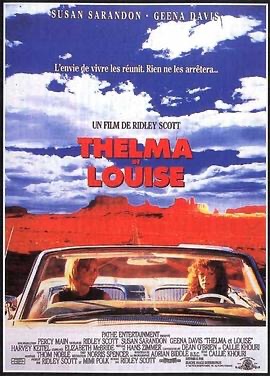
Thelma & Louise
Here's the translation of your passage: "I suddenly understand why you love road movies. They are filled with a sense of speed in both time and space. When the desert sand rises, what you see is the rugged, real world. When the most basic defenses collapse, that's when you touch the energy that has been accumulated and deformed inside you, eager to break free. It comes from life’s pursuit of the self, from the pain of having seen the ocean and finding all other waters inadequate, from the fragile senses shaped by life’s grinding, and from the last chance you give yourself. On the road, you suddenly discover your true calling is not to be a housewife or a waitress, but to rob, intimidate, shoot, drive fast, and laugh like a man. You don’t have the chance to stop, and you can’t look back. Fortunately, the vast canyon lies ahead, the bright sky and drifting clouds accompany you, and a close companion keeps you from being a wandering ghost. Fortunately, time is short, there’s no room for regrets, and the journey is long, with determination and few worries. So, this journey, though idealized, makes you envy it and want to try. It’s the necessary ingredient for what makes a movie so captivating. But life, as WOLF says, wisdom may be scarce at times, but luck is not something to rely on. So, we calculate: if the journey is still full of suffering, why even start? Over time, you stop imagining that your life will be completely changed by travel. The best journey is one with no return. The purest form of departure is when you leave and never look back. Because only when you let go of everything, can you gain everything." Let me know if you need any adjustments!
Read Full Review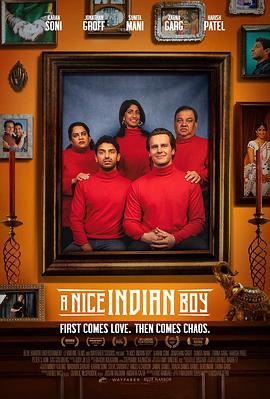
Install Our App
Get quick access to reviews, save your favorites, and receive notifications about new reviews for the movies you love.
- Access reviews offline
- Get notified about new reviews
- Save your favorite movies
- No app store required
For iOS devices:
- Tap Share button
- Scroll and select "Add to Home Screen"
- Tap "Add" to confirm

Movie Fan FAQs
Your Roadmap to a Smarter, More Fun Movie Journey
How do I find the most popular movies right now?
Check out our “Audience All-Stars” section for the week’s hottest picks and trending blockbusters.
Can I watch full movies or just trailers here?
Currently, we offer high-quality trailers and fan reviews. Stay tuned for more features in the future!
How are movies selected for the featured list?
Our featured movies are chosen based on audience buzz, watch counts, and trending discussions.
Is the content updated regularly?
Yes! We update trailers and reviews daily so you never miss the latest releases.
Can I submit my own movie review?
User review submissions are coming soon—follow us for updates and your chance to be featured!
Are the reviews and ratings trustworthy?
All reviews are from real fans, and we highlight honest, spoiler-free opinions for your best experience.


